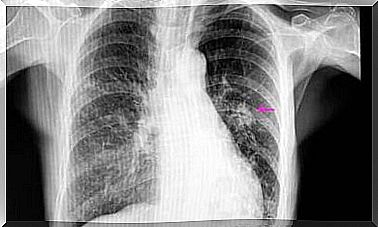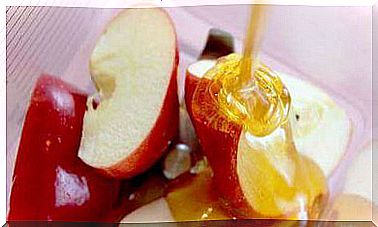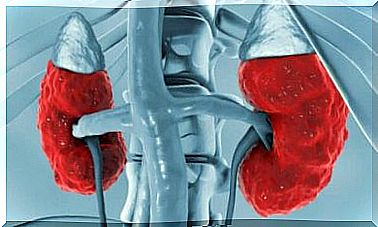Antidepressants And Alcohol: What Effects Does Their Combination Have?
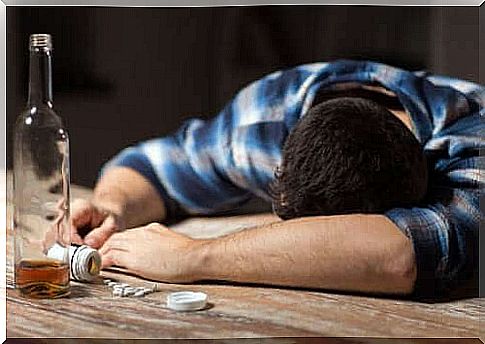
Many people combine antidepressants and alcohol without realizing that this combination of substances can have serious health consequences. In addition, 15% of people with an affective disorder have an alcohol addiction, which can further aggravate the situation.
What are antidepressants?
Antidepressants are certain medications that are a well-known treatment option for depression, a disease that affects 15% of the population. In the body we have substances called neurotransmitters that are responsible for sending signals.
One of them – serotonin – regulates mood and a deficiency of this neurotransmitter can lead to depression. However, it is not the only neurotransmitter involved in this disease.
The purpose of taking antidepressants is to increase the concentration of neurotransmitters in the body. In this way, this pathological mood can be changed.
There are several types of antidepressants available. Some examples of this include:
- Selective Serotonin Reuptake Inhibitors (SSRIs)
- Serotonin and Norepinephrine Reuptake Inhibitors (SNRIs)
- Atypical Antidepressants
- Tricyclic Antidepressants
- Monoamine Oxidase Inhibitors (MAOIs)
What Effects Do Antidepressants Have?
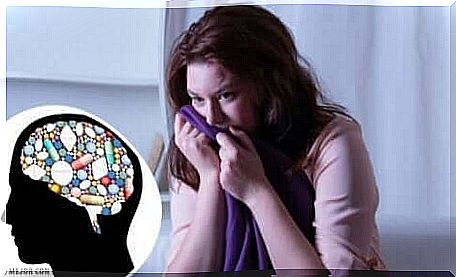
Despite all having a different mechanism, all antidepressants serve the same purpose. Among the side effects that they can cause in the body, we can highlight the following:
- Fatigue and drowsiness
- Nausea
- Insomnia
- Dryness of the oral cavity
- Blurry sight
- Constipation
- Agitation, restlessness and anxiety
The danger of the combination of antidepressants and alcohol
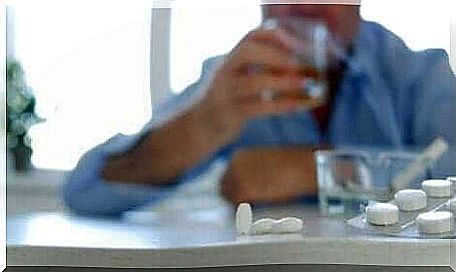
Experts are not aware of the exact interaction between antidepressants and alcohol. In addition, the interaction often depends on the amount of alcohol a person consumes and the type of antidepressant they are taking.
For example, selective serotonin reuptake inhibitors, as we have seen, increase the concentration of this neurotransmitter by preventing its reuptake. At the same time, alcohol also increases serotonin levels, albeit in a temporary way.
In this way, someone taking antidepressants and alcohol at the same time is at risk of temporarily having too much serotonin in the brain and as a result, they can develop serotonin syndrome.
What is Serotonin Syndrome?
As we mentioned, serotonin syndrome is a clinical condition that results from an excess of serotonin. However, its severity is highly variable and depends, among other things, on the cause. In the most severe cases, the patient’s life could be in danger. Patients with this syndrome experience various symptoms such as:
- restlessness
- arousal
- high bloodpressure
- muscle spasms
- diarrhea
However, if the alcohol consumption is chronic and long-term, it can actually lead to low serotonin levels. The reason for this is that our bodies adapt to psychoactive substances through a phenomenon known as habituation.
When getting used to the intake of alcohol, depressive symptoms therefore occur because the available amount of serotonin decreases. And if a person additionally takes antidepressants, the result will be a decrease in the effectiveness of these drugs.
The Effects of Combining Antidepressants and Alcohol
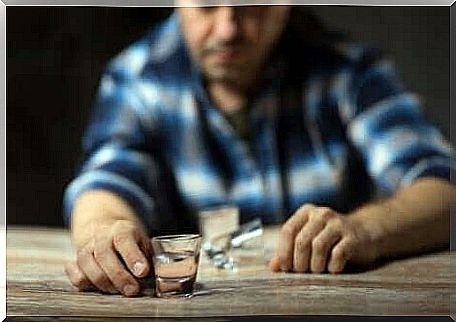
One of the consequences of combining antidepressants and alcohol is an exacerbation of the side effects of antidepressants. Some examples of this are:
- Worsening of the depressive state. Unfortunately, drinking alcohol can counteract the beneficial effects of antidepressants, making the symptoms more difficult to treat.
- Decreased cognitive activity. As we all know, alcohol affects coordination, thinking and reaction time. If both substances are combined, the effects of antidepressants on the central nervous system will then exacerbate these problems.
- Sedative effects. Some antidepressants can cause drowsiness and this effect is also characteristic of alcohol. Therefore, the sedative effect can become more intense when a person combines the intake of antidepressants and alcohol. You should therefore be extra careful when you drive, for example.
- Risk of death. This is clearly the most serious consequence that the combination of antidepressants and alcohol could have. As we explained above, in a severe case of serotonin syndrome, death can occur.
Conclusions
As you have read, the combined use of antidepressants and alcohol can have serious consequences. Therefore, before starting treatment with this type of medication, it is very important that you discuss your alcohol consumption with your doctor.
This is especially important if you have developed a dependence on alcohol. Otherwise, the consequences could be fatal.


